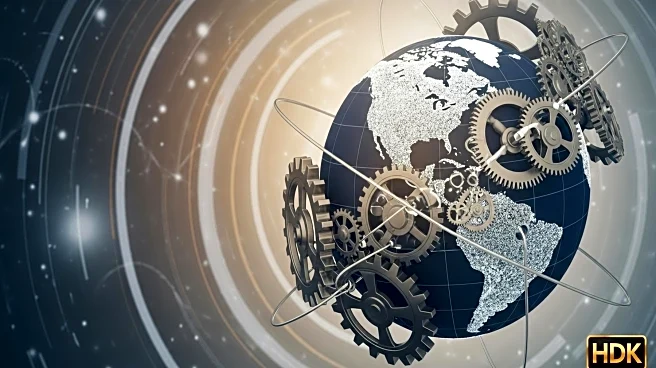What is the story about?
What's Happening?
External Affairs Minister S Jaishankar has emphasized the need for global commerce to adapt to geopolitical changes, highlighting India's efforts to diversify its economy by expanding partnerships with regions like Latin America and the Caribbean. Speaking at a panel discussion during the UN General Assembly in New York, Jaishankar noted that despite uncertainties reshaping international relations, trade and workforce mobility will continue to overcome barriers. He stressed the importance of large economies like India investing in domestic capabilities, focusing on technology, self-reliance, multi-polarity, and South-South cooperation as interconnected priorities. His remarks come amid tensions in India-US trade relations, with the US increasing tariffs on Indian goods and raising H-1B visa fees, impacting Indian IT companies.
Why It's Important?
Jaishankar's comments underscore the significance of adapting to geopolitical shifts for global commerce, particularly for large economies like India. The emphasis on diversifying trade partnerships and investing in domestic capabilities reflects a strategic approach to mitigate risks associated with international uncertainties. The strained India-US trade relations, marked by increased tariffs and visa fees, highlight challenges faced by Indian businesses, especially in the IT sector. By positioning India as a resilient economy and reliable partner, Jaishankar aims to reinforce India's role in shaping global growth, suggesting that trade and human talent will continue to drive new pathways despite political and policy shifts.
What's Next?
India's focus on expanding trade partnerships with new regions and investing in domestic capabilities suggests a proactive approach to navigating geopolitical uncertainties. The ongoing tensions in India-US trade relations may prompt further diplomatic negotiations to address tariff and visa fee issues. As India seeks to diversify its economic ties, potential reactions from major stakeholders, including political leaders and businesses, could influence future trade policies and agreements. The emphasis on technology and self-reliance may lead to increased investments in domestic industries, fostering innovation and economic resilience.
Beyond the Headlines
The broader implications of Jaishankar's remarks include potential shifts in global trade dynamics, with India playing a more prominent role in South-South cooperation. The focus on technology and self-reliance aligns with global trends towards digital transformation and sustainable development. The geopolitical tensions and trade frictions may also prompt discussions on ethical and legal dimensions of international trade policies, particularly concerning workforce mobility and economic equity. Long-term shifts could involve redefining global trade norms and fostering inclusive growth through diversified partnerships.














